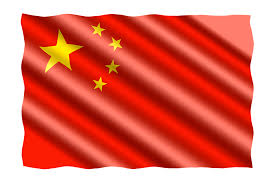 The bears will love it! China’s credit growth is unsustainable. The credit bubble will pop eventually. But don’t go short on China just yet.
The bears will love it! China’s credit growth is unsustainable. The credit bubble will pop eventually. But don’t go short on China just yet.
David Lafferty, Chief Market Strategist for the $895.6 billion Natixis Global Asset Management firm, says the rate in which China is accumulating debt “appears to be unsustainable”, but the nation’s ability to control lenders and borrowers may help delay a total credit collapse.
Many China contrarians have been betting against the renmimbi over the last year, to no avail. The central bank has ample reserves to prop up the currency against the dollar, keeping it within a tight range. In August 2015, the People’s Bank of China allowed for the currency to move as much as 4% in any given direction during a trading session. The currency still manages to hold strong, though Barclays Capital and George Soros think it’s due to hit 7 some point soon. It’s currently worth 6.802 to the dollar.
Lafferty notes that China’s sovereign debt at the federal level is low by global standards, near 44% of GDP. Still, credit expansion in nearly all other forms “has been explosive,” he says. That includes bank lending, corporate debt issuance, and the provincial funding vehicles and non-bank lenders known as the shadow bankers.
Excluding government liabilities, credit outstanding to consumers and businesses is growing at a rate of 18 trillion yuan per year or approximately $2.5 trillion, representing nearly a quarter of China’s GDP. The total outstanding amount of this debt is over 200% of GDP, an unsustainable build-up, says Lafferty. This “may represent a systemic risk to both China and the global economy,” he thinks.
China is committed to a 6.5% growth target. But it seems Beijing has been unwilling to make major structural reforms to reduce the country’s dependence on credit, especially shadow lending at the muni level. Nevertheless, and this is where short positions have to tread lightly, the Chinese government’s ability to exercise control over the Big Four state banks that dominate the iShares FTSE China (FXI 24,02 -0,11 -0,46%) fund, and also controls the purse strings of the biggest borrowers, could help delay the timing of any potential credit collapse.
“Delay” is the key word here. Lafferty thinks there is some sort of credit bubble in China. Just how loud the Chinese credit bubble pops is anybody’s guess at this point.

